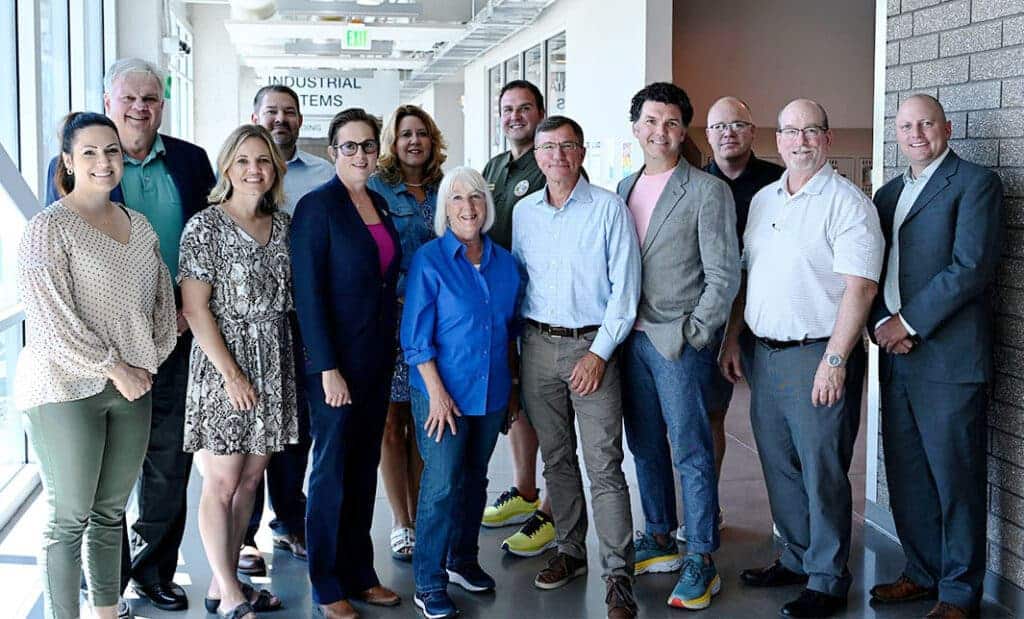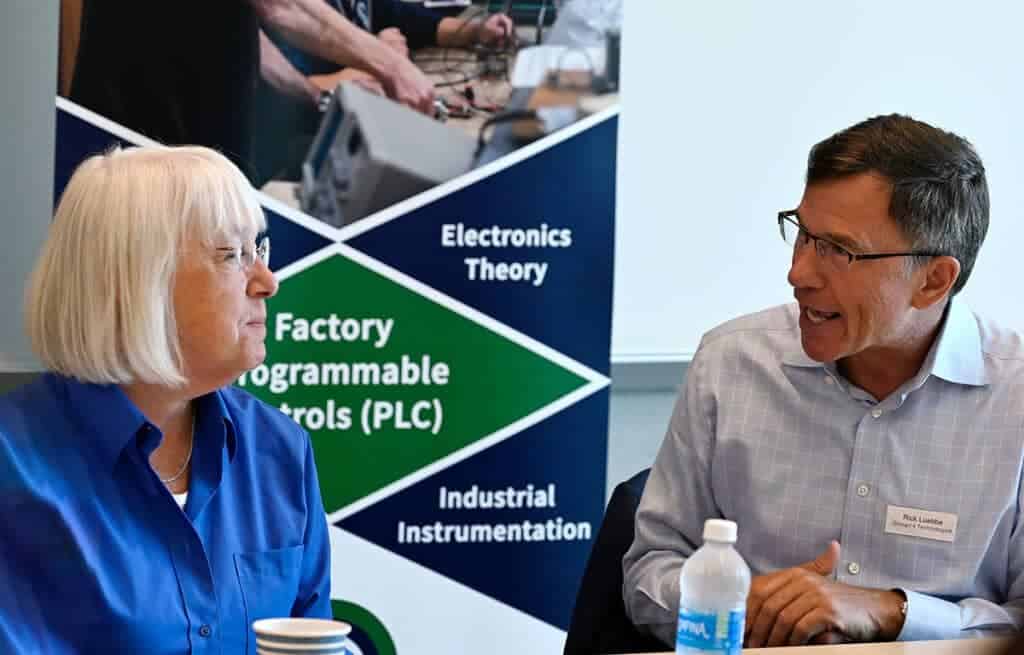Group14 CEO Rick Luebbe and Senator Patty Murray led a discussion today in Moses Lake, WA, about the collective work taking place in rural communities to accelerate the emerging clean energy economy. This includes pathways for new career opportunities, training at Group14’s BAM-2 factory, and the wide importance of investing in the local community and economy.
“It is clear that if we want our nation to stay competitive, we need to invest in the future. That’s what the Bipartisan Infrastructure Law was all about,” said Senator Murray. “And today we are seeing this work in action! It’s thrilling to see these policies on workforce training, clean technology, and more, coming together at Big Bend Community College in a way that will really make a difference for people in Moses Lake for years to come.”

Representatives from Big Bend Community College, Career Connected WA, Columbia Basin Technical Skills Center, Grant County Economic Development Council, Grant County PUD, and Microsoft joined to speak on the collaboration efforts taking place in Moses Lake and across Washington State.
At the heart of Washington State’s clean energy economy, Group14 is moving quickly on the construction of its commercial BAM-2 factory in Moses Lake, which will be the world’s largest factory for advanced silicon battery technology. Critical to our success is the support of policymakers and community partners, whose willingness to join hands has strengthened our capacity to meet the demand for electric vehicles, build more renewable energy infrastructure, and offer new economic opportunities and jobs across the state.

Senator Patty Murray and Group14’s co-founder and CEO Rick Luebbe
“To create more jobs and career opportunities in-state, Group14 is working alongside our community partners to offer career pathways for skilled jobs and support training and reskilling programs in Washington’s high-growth career sectors like clean energy in Moses Lake,” said Rick Luebbe, CEO and co-founder of Group14 Technologies. “We are committed to investing in the Moses Lake community as we build our second US Battery Active Materials factory in order to advance the production of next-generation battery technologies and build a resilient domestic battery supply chain.”


